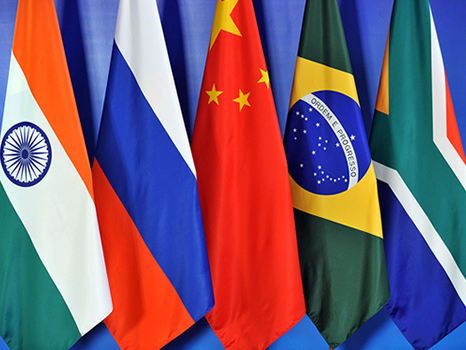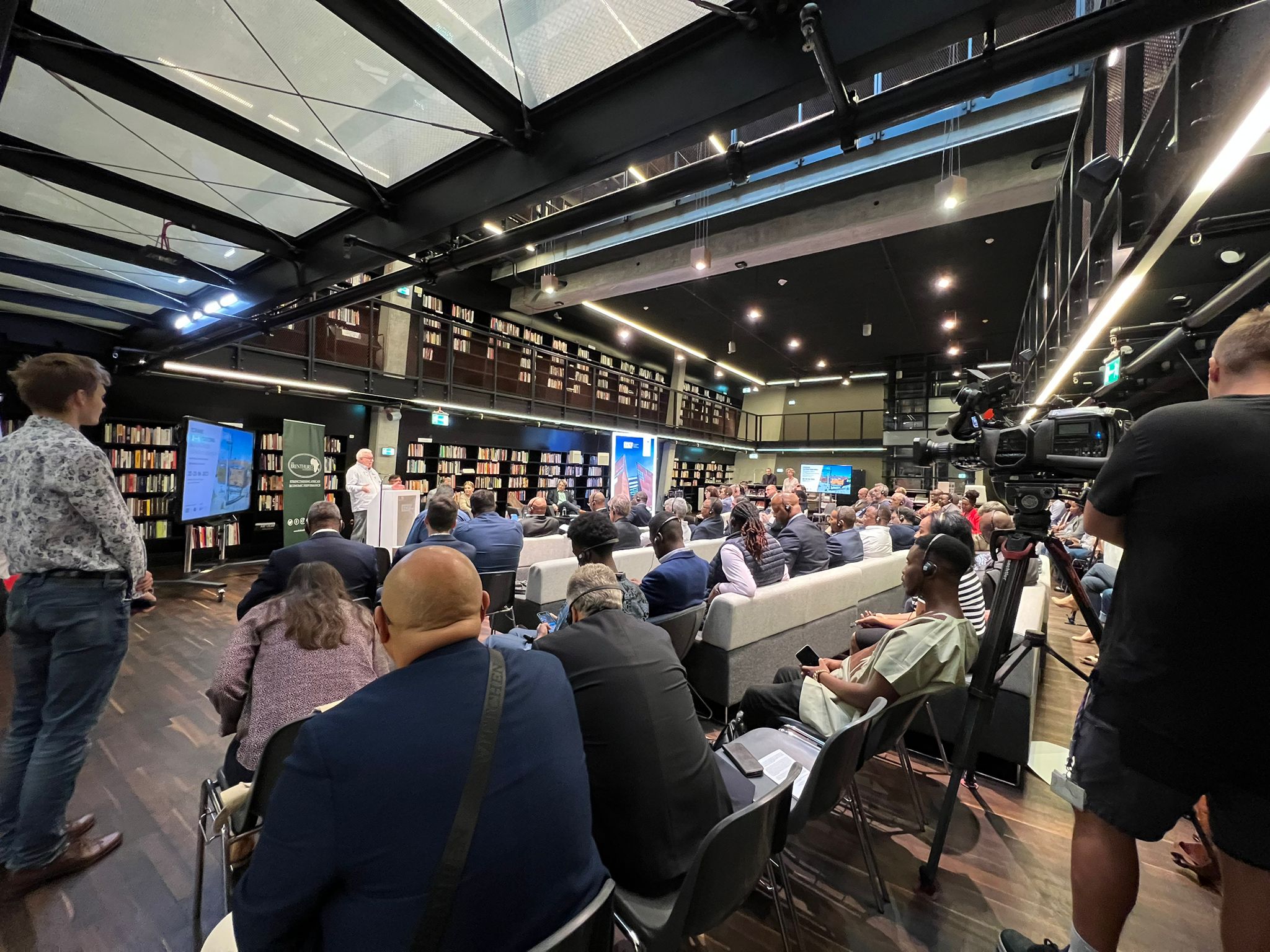News
"We Don't Need no Thought Control” – The Problem with the BRICS Summit
The fact that South Africa is willing to support Russia in its war against Ukraine (or at least support Russia more than it supports Ukraine), says something about its rulers’ human rights orientation, which might be closer to the governmental children of Mao and Stalin than those of Mandela and Sisulu.

Director, The Brenthurst Foundation

Research Director, The Brenthurst Foundation

One problem with the upcoming BRICS Summit was immediately apparent the moment that Iqbal Survé promoted “responsible journalism in South Africa” in the name of the related BRICS Media Forum.
Survé, the co-chair of the forum and former chair of the SA BRICS Business Council, called for “steps” to be “implemented to prevent anti-BRICS sentiment, of which there is much from the Western conservative axis, from possibly leading to bank account closures and throttling of vital financial resources, for example, to force compliance of those media who have a different opinion, or who service a different sector of society”.
He went on to recommend that, “By openly acknowledging the importance of independent journalism, the BRICS bloc can signal a collective commitment to safeguarding the free press.
“For Africa and the BRICS region to really grow though,” Survé wrote, “the issue of disinformation and fake news also needs to be tackled. BRICS nations could, for example, establish a joint task force to combat the spread of misinformation, sharing best practices and technological solutions to ensure accurate and verified information reaches the public. In doing so, they can reinforce their position as responsible partners in the global media landscape.”
It is not hard to see where this is coming from. Survé has failed to throttle criticism of his dodgy dealings and the transformation of the Independent Media group from watchdog to lapdog and personal praise poodle.
He appears ignorant of the incontestable fact that Russia and China are not home to free and critical media and are unlikely allies in the fight against fake news. Presumably, he has no beef with their state censorship which protects the nomenclature against the vagaries of criticism and “deals with” journalists by making them literally go away.
Still, the lack of a sense of irony is not the only problem with BRICS.
The term ‘Global South’
The first and most fundamental of these is conceptual. The BRICS nations are purported to represent “Global South” aspirations. But as Stewart Patrick and Alexandra Huggins point out in a recent Carnegie paper, the term is misleading and unhelpful for a number of reasons, though this has not stopped some notables from employing it.
“Many countries of the Global South face huge debts, increasing poverty and hunger, and the growing impacts of the climate crisis,” observed the UN Secretary-General António Guterres last November. World Bank President Ajay Banga has also used the term, as has US President Joe Biden and some of his officials, including the national security adviser and the secretary of commerce.
So too have leaders of the Global South spoken in this way about themselves.
Coined originally by Carl Oglesby, a US writer and activist, in 1969, the term is becoming increasingly popular among academics in search of a jargon rail. But that is no recommendation of its accuracy or usefulness.
Usage has unsurprisingly increased, given the revived bipolarity between the West and China/Russia, especially in the light of the latter’s invasion of Ukraine, and growing economic problems in the developing world in the wake of growth slowdowns, debt mismanagement and the coronavirus pandemic.
But, note Stewart and Huggins, the term lends itself to generalisations and commits similar mistakes to the ones that blighted development in the past. For one, it supposedly represents what was once termed the “Third World”, today a pejorative label, which includes no fewer than 134 countries.
Given the differences between large states and small, littoral and landlocked, oil-rich and poor, service economies and industrial powerhouses with large and small populations, including two-thirds of the Earth’s people, it risks “conceptual incoherence”, coming up with premises and policies so general they are not useful, and reinforcing “inaccurate and outdated dichotomies and stereotypes”.
Indeed, many of its members have enjoyed impressive growth because of — and not despite — the global economy that other members rail against. It also lumps together diverse political regimes, including model democracies (Costa Rica, for example) and totalitarian regimes (take your pick).
Respect for human rights?
But perhaps this suits some, and points to the second failure of the BRICS concept. How valuable is this body when its members apparently don’t share core values, not least of human rights and the maintenance of global order?
The fact that South Africa is willing to support Russia in its war against Ukraine (or at least support Russia more than it supports Ukraine), says something about its rulers’ human rights orientation, which might be closer to the governmental children of Mao and Stalin than those of Mandela and Sisulu.
Third, if BRICS actually wants to change the basis of the world’s power structures, what might its actionable recommendation be for restructuring the United Nations? At its core, for all of the grandstanding on this issue, the problem with this objective, tired old pinata that it has become, is that the current members don’t want to be diluted and the aspirants can’t agree among themselves who should become new permanent members.

Global South alphabet soup
While we are regularly informed that all manner of countries want to join BRICS, it is not alone in the alphabet soup of new international bodies representing bits of the Global South.
These include the CIVETS (Colombia, Indonesia, Vietnam, Egypt, Turkey and South Africa), the MINT economies (Mexico, Indonesia, Nigeria and Turkey) and the EAGLEs (Emerging And Growth-Leading Economies — Brazil, China, Egypt, India, Indonesia, South Korea, Mexico, Russia, Taiwan and Turkey), IBSA (India, Brazil and South Africa), the 23-member Iora (Indian Ocean Rim Association, formerly the Indian Ocean Rim Association for Regional Cooperation), as well as VISTA, MIST/ MIKT/TIMS, Next 11, and many others, not least the Southern African Development Community (SADC), the Common Market for Eastern and Southern Africa (Comesa) and most importantly, the African Continental Free Trade Area (AfCFTA).
What is BRICS’s comparative advantage given the diversity of its membership and their size and orientation, save what they are against (the West)?
Finally, related to the above, South Africa has made a choice to put its limited resources — financial and human — behind BRICS. Is this sensible, given that it should be investing as much as it can to access the richer markets of the world?
At last glance, the share of developed economies (members of the Organisation for Economic Development and Cooperation, for instance) amounted to 63% of the global economy, three-quarters of world trade, 95% of official development assistance, and just 18% of the world’s population.
Thus, investing a big chunk of time, money and energy in BRICS is akin to withdrawing the last bits of your taxpayers’ savings, going out for a fab meal for two and betting the remainder on red.
You wouldn’t do that with your own money, would you?
This article originally appeared on the Daily Maverick
Photo: Government ZA Flickr

